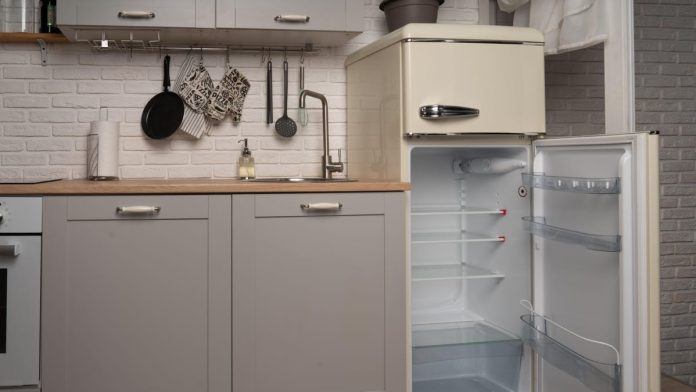Technology is supposedly getting smarter all the time. The sudden rush of AI services and products like ChatGPT has reinvigorated the conversation around the capabilities of sophisticated, connected algorithms that can automate our lives, but it’s just the latest in a trend that started years ago with “smart” televisions and Siri. These days a surprising number of things are “smart” and part of the Internet of Things. From the thermostat on your wall to just about every appliance in your kitchen or laundry room, there’s a “smart” version available.
But do you need—or even want—a “smart” refrigerator? A “smart” dishwasher? Yes, these smart appliances offer some useful features, but half of the folks who buy smart appliances don’t bother to connect them, either because of privacy concerns (see below) or because they simply don’t see the benefit (do you need your fridge to track your grocery list, or do you just jot it down somewhere like a normal person?). Samsung is apparently plotting to infuse all of its appliances with its digital assistant Bixby (plus an AI boost), despite the fact that Bixby is perhaps the most despised piece of technology this side of speed cameras.
The answer is pretty obvious: No, you probably don’t need smart appliances. In fact, you should probably buy dumb ones—as long as you have the option.
Lack of privacy
Manufacturers love smart appliances. Not because they love giving you new features and more control, but because they can hoover up an enormous amount of your personal data and use it for their own purposes and/or sell it to third parties, who will weaponize it against you in the form of targeted advertising. Consumer Reports found that common “smart” kitchen appliances from big companies were sending up to 19MB of data back to the mothership every week. Some of that data certainly has to do with the operation and functioning of the appliance, but a lot of it is just about your habits, and some manufacturers also use data from other sources to enhance what they know about you.
The most important aspect of this is that you have no idea what’s being tracked and transmitted, or what it’s actually used for. And the benefit to you is arguably minimal. Yes, in theory, data you generate might contribute to a new feature that’s downloaded to your appliance, or a bug fix, but people used dumb appliances for decades without such nebulous benefits.
Lack of control
Appliance manufacturers are in the business of selling you new appliances. While they may not purposefully make your appliance obsolete, they’re not particularly worried about it happening, either. And smart appliances can stop working for reasons that have everything to do with being “smart.” Some models have features that will only work with an Internet connection, so if you ever decide to cut off the data streams—or if the wifi chip in your oven fails—you might find your appliance less useful.
Another potential problem? Company failure. If the company that makes your appliance goes out of business, or shuts down the division that sold your appliance model, it might make your appliance unusable—what’s called “bricking.” A bricked appliance is still in perfect working order, but since it can no longer communicate with its mothership, it simply refuses to work. And sometimes this can happen just because of the march of technology—millions of older smart devices will no longer work once the older 2G and 3G networks shut down, and if the manufacturer doesn’t continuously update the software that makes them work, they could stop working or become security risks for you. That’s a scenario likely to repeat over the years.
Higher operating costs
Smart appliances tend to cost a bit more, because they offer features and functionality that “dumb” appliances can’t. That’s fair. But they also tend to cost more to maintain—if they can be repaired at all.
The cost of repairing a “smart” appliance is about twice that of a dumb one. This is due to the cost of the components involved, which typically include sophisticated chips and circuitry instead of old-fashioned mechanical controls, as well as the higher rates charged by repair workers capable of working with them.
And it can even be impossible to find someone to repair a smart appliance, even if the problem is relatively basic. Manufacturers sometimes try to discourage any sort of DIY repair, and often the only option you have when a smart appliance breaks down—even a relatively new one—is to replace it entirely.
lifehacker.com
https://lifehacker.com/the-case-for-buying-dumb-appliances-1850957723














